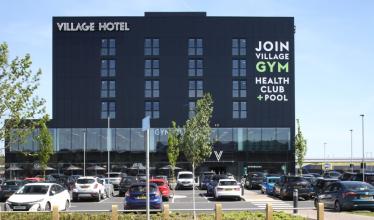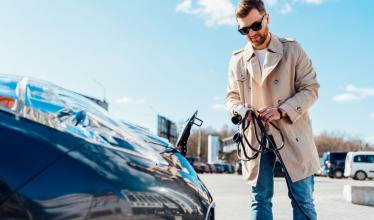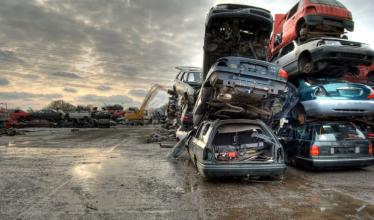Three years after launching the breakdown industry’s first engine-powered emergency charger for electric cars, the RAC has begun rolling out a faster version, enabling its patrols to get electric car drivers moving again even quicker.
The modern-day equivalent of a fuel can for electric cars, RAC EV Boost has been uprated from 3.5kW to 5kW to increase the speed of charge for members who either run out of charge or encounter faulty charge points. The new charger is capable of adding around 10 miles of range in around 30 minutes or less.
Last May, the RAC further underlined its position as the number-one for EV breakdown cover by signing an exclusivity agreement with the specialist engineering company that designed and developed the lightweight and compact RAC EV Boost charger, which weighs just 35kg.
Shrewsbury-based Original ADS and the RAC have since won a number of awards for the charger, including Best Use of Technology at the Motor Transport Awards 2021 and Best Product Development Innovation in the UK Business and Innovation Awards 2022.
“Having been the first breakdown company to come up with a practical and efficient solution to giving an emergency charge to a flat EV and being the only roadside assistance company in the UK that can use this pioneering British-designed technology, we’re really excited to be speeding up the charger to 5kW so we can save members even more time,” said RAC chief operations director Paul Coulton.
The RAC is currently on track to have 200 RAC vans – around a fifth of its patrol fleet – fitted with EV Boost chargers by the end of the year, with as many as 130 of those being the new faster 5kW units. Importantly, the unit avoids the need for breakdown vans having to carry heavy and bulky batteries that have to be re-charged after every use, or having to put the out-of-charge vehicle on to a flatbed recovery truck in order to take it a short distance to a charge point.
“While we’ve put the UK’s first electric breakdown van into service in the form of a Renault Zoe, there isn’t currently an electric van on the market that can do everything that a diesel-powered one can in terms of towing broken-down vehicles and carrying 500 tools and parts,” Coulton continued.
“So, even though we’re using a diesel van to recharge an electric car, we’re confident it’s faster, more efficient and better for the planet than having to send a big flatbed recovery vehicle or a van full of batteries. This is also why our emergency mobile chargers had to be compact. At the size of a shoe box and weighing just 35kg, RAC EV Boost only takes up a small amount of space in a standard orange breakdown van.
“And, if a member breaks down in an EV for another reason our patrols have more unique equipment in their vans to help. If they can’t fix the fault there and then, they can tow it themselves with our All-Wheels-Up rapid recovery system meaning there’s no need to wait for a tow truck. It’s like having a flatbed in the back of an RAC van.

The RAC recently distributed the Zap-Map app to 1,600 of its patrols.
“These two breakthrough RAC innovations mean we’re perfectly placed to help any electric vehicle driver, whatever problem they might encounter on the road or at home. This should give drivers the confidence to make the switch to electric.”
Having succeeded in producing the new 5kW RAC EV Boost unit, work is also underway on perfecting a 7.5kW charger – which the RAC and Original ADS believe will offer the best possible balance of cost, efficiency and charging time at the roadside.
Furthermore, the RAC recently joined forces with Zap-Map to be even better placed to help EV drivers who do run out of charge, with the Zap-Map app distributed to the RAC’s 1,600 patrols via all their devices – phones, laptops and in-van terminals – enabling them to locate the nearest available, suitable, publicly accessible charge point for RAC members to get their EV recharged and back on the road again as quickly as possible.



